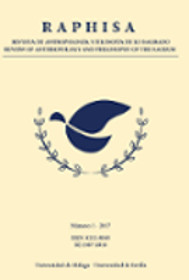The Historiographical Debate around the Nobi System
The Case of James B. Palais
DOI:
https://doi.org/10.24310/raphisa.7.2.2023.17519Keywords:
James B. Palais, nobi system, Joseon, nobi, slaveryAbstract
There is currently a debate surrounding the nature of the nobi system throughout Korean history. We can find historians who define the nobi system as a system of slavery and the nobi as slaves, and historians who prefer to define it as a system of serfdom and the nobi as serfs. This article exposes the interpretation that the American historian James B. Palais offered about the nobi system in the Joseon dynasty of Korea based on his intellectual production, placing greater emphasis on the interpretation offered in his work Confucian Statecraft and Korean Institutions: Yu Hyongwon and the Late Choson Dynasty, as well as exposing the intellectual influences that motivated this interpretation by Palais. Palais's interpretation of the nobi system would revive the debate surrounding the nature of the nobi system and lay the foundation for the interpretation of the nobi system for future historians of Korea.
Downloads
Metrics
References
Baker, D. (2014). Early Visions of Reform and Modernity. Education About ASIA, 19(1), 52-55. https://www.asianstudies.org/publications/eaa/archives/early-visions-of-reform-and-modernity-sirhak-and-religious-movements-in-choson-korea/
Cumings, B. (1997). Boundary displacement: Area studies and international studies during and after the cold war. Bulletin of Concerned Asian Scholars, 29(1), 6–26. https://doi.org/10.1080/14672715.1997.10409695
Hecker, F. J. (s. f.). History. The Henry M. Jackson School of International Studies. https://jsis.washington.edu/about/history/
Kim, B. R. (2003). Nobi: A Korean System of Slavery. Slavery & Abolition, 24(2), 155–168. https://doi.org/10.1080/01440390308559162
Kolchin, P. (1976). [Review of Slavery and the Numbers Game: A Critique of Time on the Cross, by H. G. Gutman]. Journal of Social History, 10(1), 107–109. http://www.jstor.org/stable/3786425
Ortolano, G. (2015). The typicalities of the english? walt rostow, the stages of economic growth, and modern british history. Modern Intellectual History, 12(3), 657-684. https://doi.org/10.1017/S1479244314000626
Palais. J. B. (1984). Slavery and Slave Society in the Kory? Period [Review of Kory? Kwijok sahoe wa nobi (The Aristocratic Society of Kory? and Slavery), by H. S?nggi]. The Journal of Korean Studies, 5, 173–190. http://www.jstor.org/stable/41490190
Palais, J. B. (2001). An Interview with James B. Palais. The Review of Korean Studies, 4(2), 281–313. https://www.dbpia.co.kr/journal/articleDetail?nodeId=NODE09378085
Palais, J. B. (2014). Confucian Statecraft and Korean Institutions : Yu Hyongwon and the late Choson Dynasty. University of Washington press.
Patterson, O. (2018). Slavery and Social Death: A Comparative Study, with a New Preface. Harvard University Press.
Peck, J. (1969). The Roots of rhetoric: The professional ideology of America’s China Watchers. Bulletin of Concerned Asian Scholars, 2(1), 59-69. https://doi.org/10.1080/14672715.1969.10405406
Tipps, D. C. (1973). Modernization Theory and the Comparative Study of National Societies: A Critical Perspective. Comparative Studies in Society and History, 15(2), 199–226. https://doi.org/10.1017/S0010417500007039
Downloads
Published
How to Cite
Issue
Section
License
Copyright (c) 2024 Review of Anthropology and Philosophy of the Sacrum

This work is licensed under a Creative Commons Attribution 4.0 International License.
License permitted by the journal: Public Domain. Authors retain the copyright and full publishing rights without restrictions.






